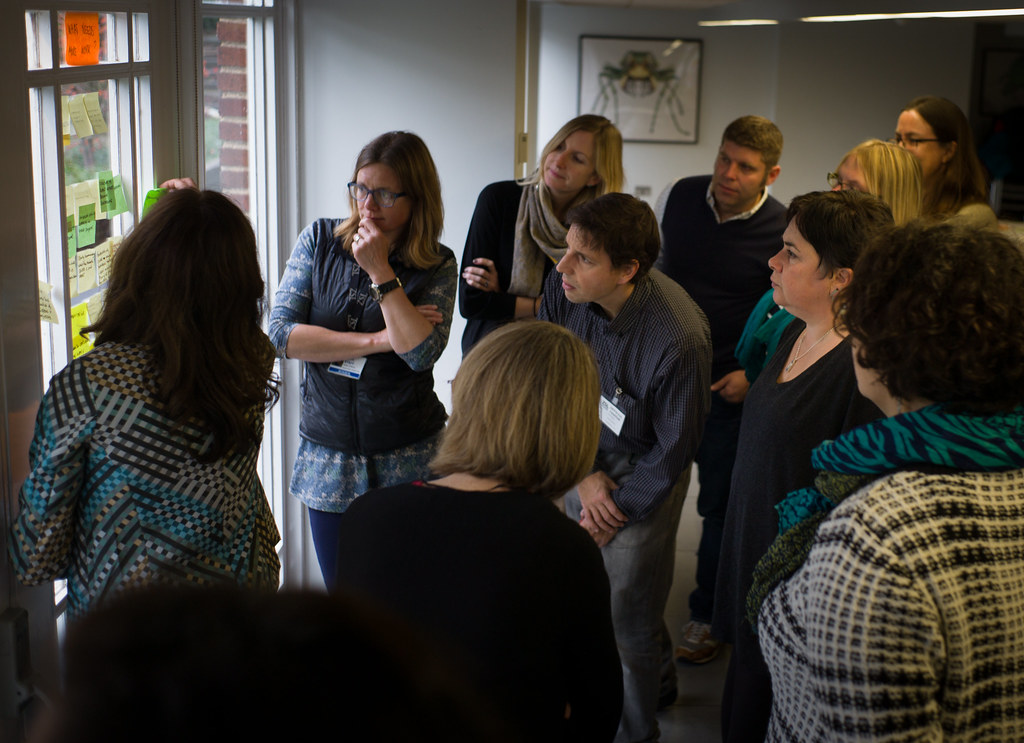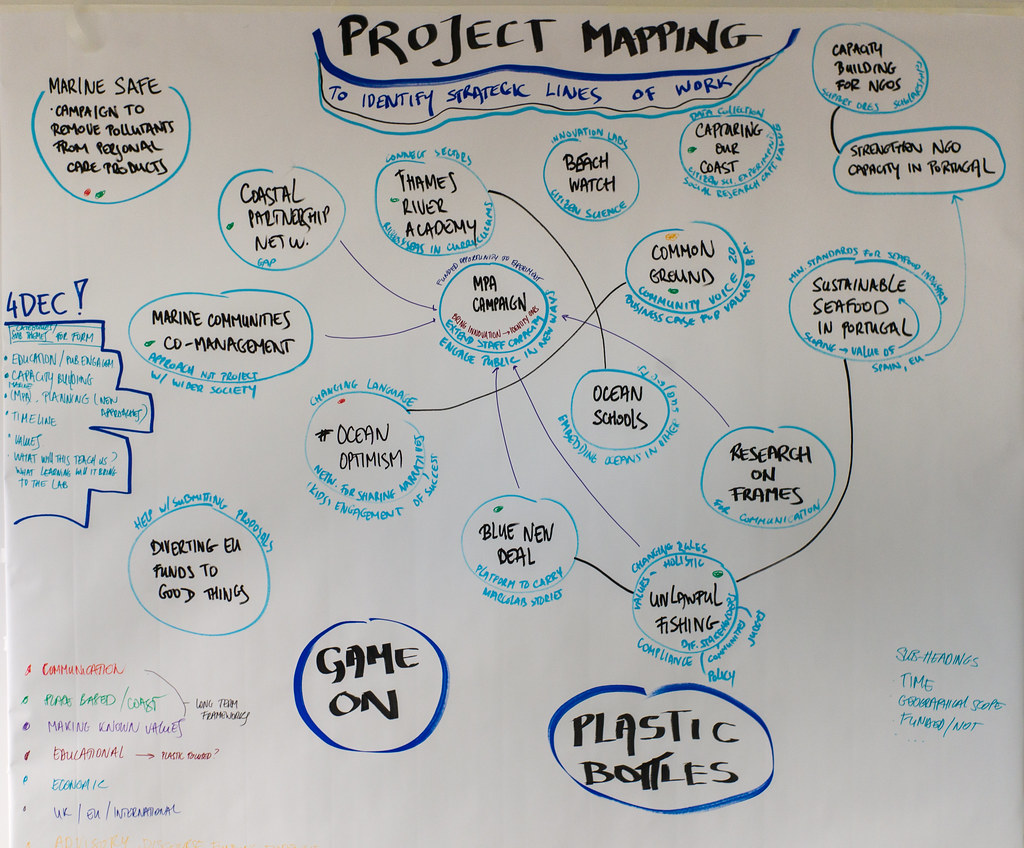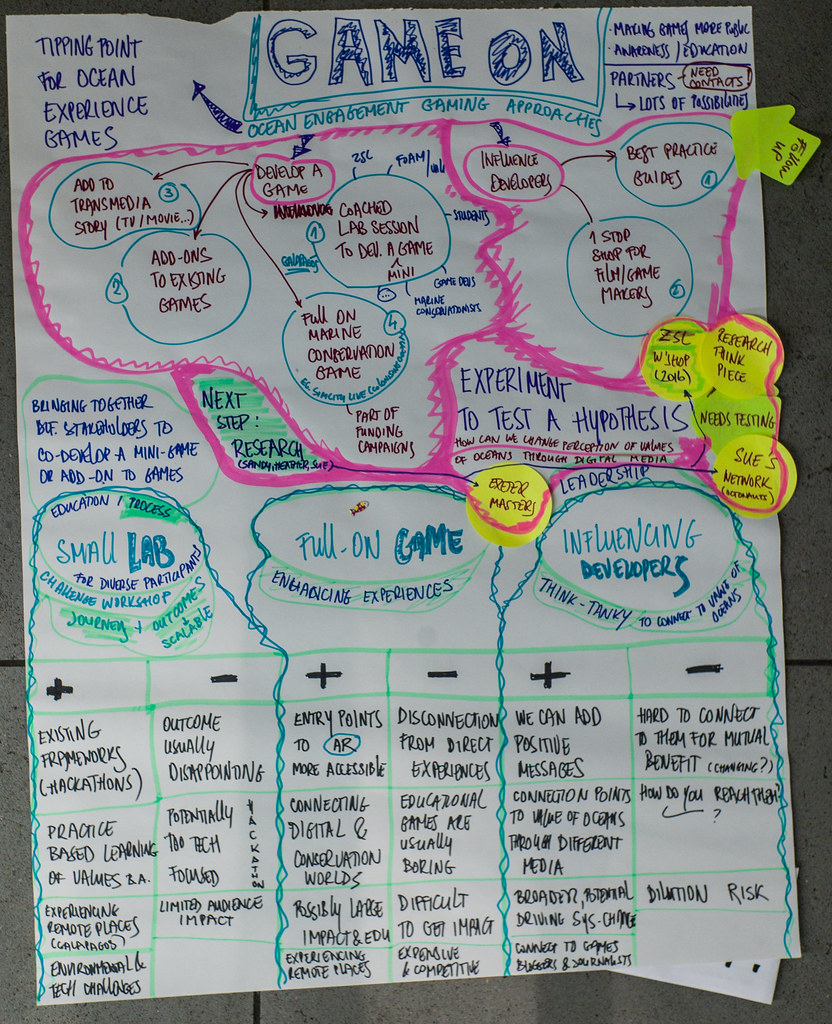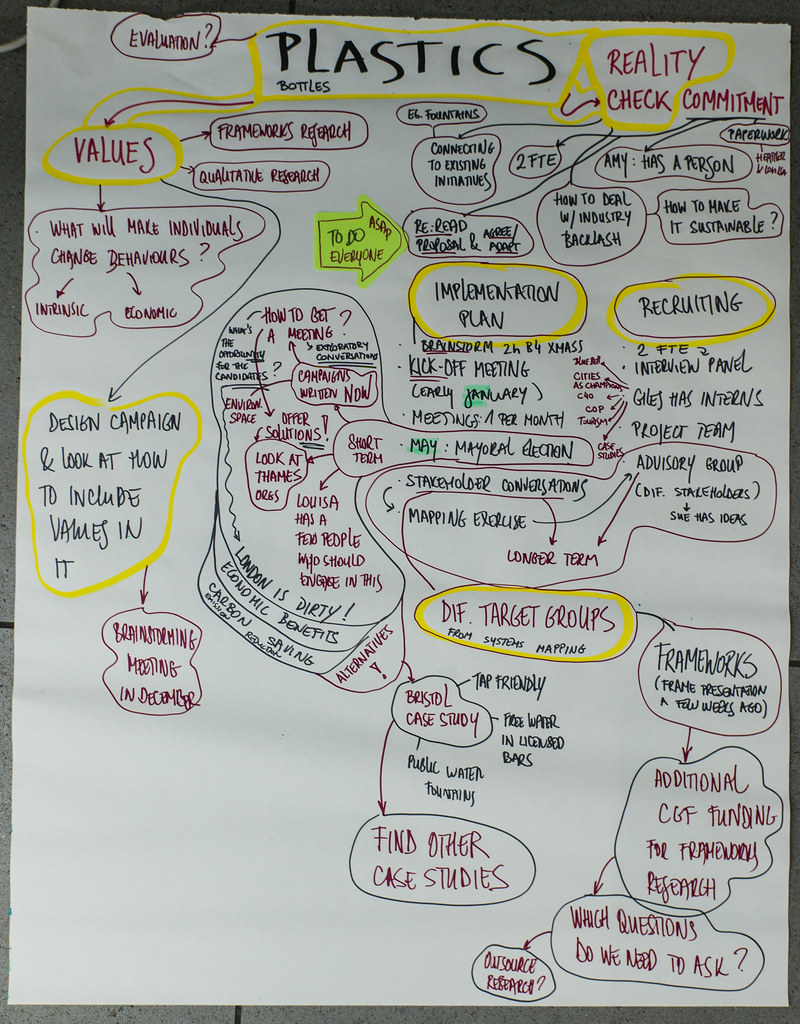This is an old revision of the document!
Marine CoLABoration Workshop - November 2015
A Marine CoLAB workshop held at the London Zoo
Participants
Louisa Hooper, Heather Koldewey, Sandy Luk, Nicola Frost, Amy Pryor, Aniol Esteban, Giles Bristow, Sue Ranger, Mirella von Lindenfels, Sarah Ridley.
Facilitators: Maja Kuzmanovic, Nik Gaffney, Vali Lalioti

Framing
This is the last workshop of the first year of Marine CoLAB. Louisa Hooper compared it to standing at the seashore at low tide, with rocks and mud emerging under water, so we can begin to see the peaks, as well as what underlies them. One of the biggest challenges for this workshop and the coming year is how to do less with game-changing effectiveness. It is important to look at the big picture as well well as the practicalities of the months and year(s) to come.
Maja Kuzmanovic looked back over the notes of the past year and distilled a few points from previous discussions on the future of Marine CoLAB, that can be used as a starting point or a point of discussion, when looking forward to 2016 and beyond. Marine CoLAB participants are keen to seize opportunities to reframe challenges and refresh whole systems. They do this by being a part of trusted collaborations and networks. After a year of working together, the facilitators added that the participants are very keen to and good at designing and working on projects.
At the very first workshop the participants designed a range of possible future scenarios for Marine CoLAB and the worlds in which it would exist. The different futures had two things in common: Marine CoLAB would be integrating values and innovation, as well as establishing and strengthening connections (between the ocean and society, between business and governments, bridging the gapes between local and global governance of oceans).
Over the course of several workshops, a range of challenges for Marine CoLAB were identified, including systemic change, public engagement, valuing (cultural dimensions) of oceans, perception of marine conservation, transparency of marine industries and plastic pollution of oceans. The facilitators observed an additional challenge: developing a sustainable support network beyond and in-between projects. This is something that began to be addressed in Lisbon and continues in this workshop.
Finally, before delving into the futures, mission, values and a range of experiments, projects and activities, it might be helpful to remind ourselves of the CGF’s goal for Marine CoLAB: To communicate the role of the ocean for human wellbeing (particularly connecting natural sciences and economy)..
Marine CoLAB so far
Future of Marine CoLAB
Mission / MIX



Values based approach

Project Incubator

Game On!

Plastics project

Planning 2016
- 10 days of time is covered per organisation
- how best to structure the time?
- smaller, structured meetings around particular topics/projects
- aggregating projects (mapping), specific project (plastics)
- discuss learning which emerges from projects
- what can we teach each other
- sometime for thinking about wider issues, larger context, incubation of vague ideas.
- time to proactively communicate,
- better integration of partners into project proposals → more explicit collaborations
- clarify evidence base for the lab, both process and projects
- collaboration as an improvement over competition for limited resources
- how can new/other partners get involved in the future?
- more focus on strategy, strategy work team, external communication
- 4~6 days of meetings of entire group
- (cf. global strategy for sharks)
- added value of open thinking space, facilitated structure
- further work required on values, strategy, project updates, planning, evaluation.
- circulate set of objectives, further ideas
- what does a lab community look like?
- strategy for engagement?
- clear criteria for 'a lab project'?
Next Steps
- project mapping
- write up value space for each project → further mapping
- Aniol to compile & reformat existing info by end of the week
- edits, additions and value prompt to be submitted by Dec. 4th
- Game On!
- potential research questions, masters topics.
- Sandy, Sue & Heather draft a few paragraphs re. research scope etc. “next week”
- Plastics
- schedule next meetings, brainstorming, etc
- project implementation plan, timeline, external deadlines. kickoff meeting (before xmas)
- establish list of existing contacts and relevant conversations, meetings required.
- 2016 and further
- write a few paragraphs about how Marine CoLab has changed/improved current work
- circulate set of objectives, further ideas
- each participant to write a one page year in review by xmas → send to louisa